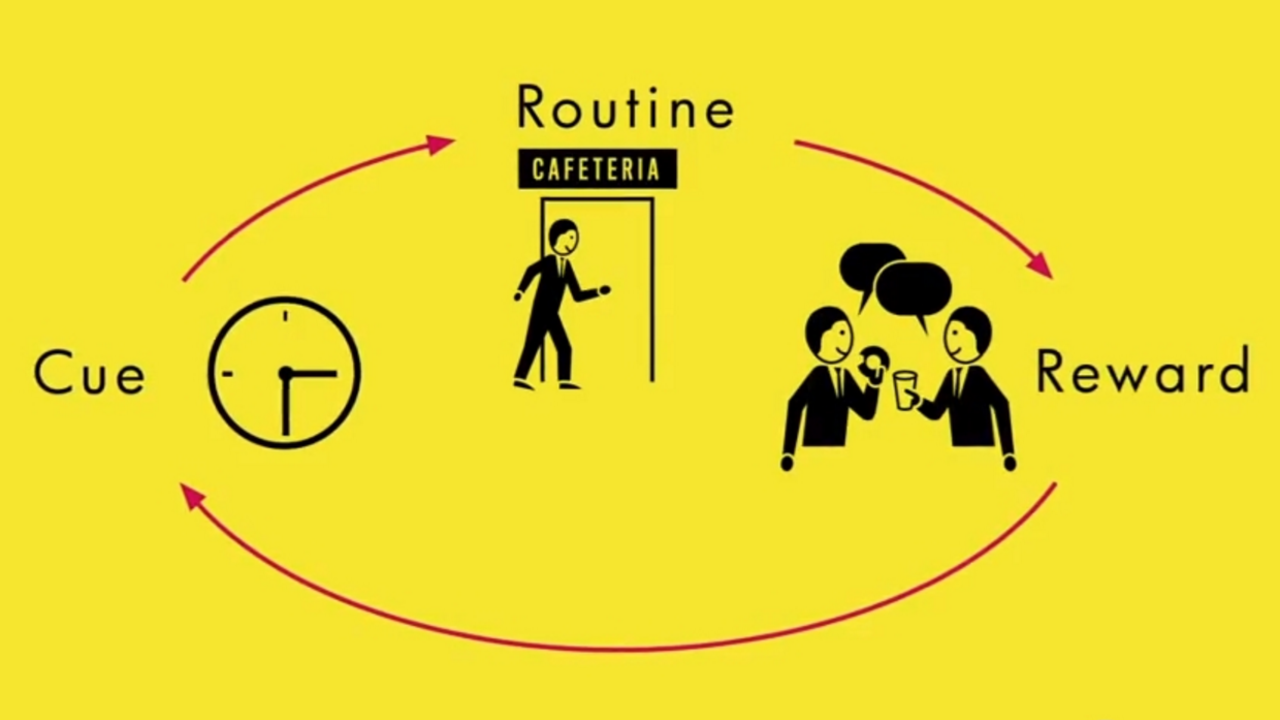How to Change Your Habits in Three Simple Steps


"We are what we repeatedly do. Excellence, then, is not an act, but a habit" (Aristotle).
A lot of what we do every day is habitual. Obviously, some of our habits are good and some aren’t, but they all work in the same way.
Think of how powerful it would be if you did the things you knew you should: If you didn’t procrastinate; if you did you got in the habit of getting ahead in your homework, if you always asked questions in class; if you did extra questions from the textbook.
A lot of times we see our habits as something we simply have to deal with, something we have or don’t have, a result of undisciplined childhood. But changing habits isn’t so hard when you understand how they work. I just finished Charles Duhigg’s book The Power of Habit, which explains the psychology and social science behind habits and outlines the simple, three step process involved in all habit.
Let’s take one of Duhigg’s examples: alcoholics anonymous. The famous 12 step program Alcoholics Anonymous uses doesn’t rely on therapies or scientific treatments, but rather on uncovering the individual reasons why people drink and dealing with them differently. For one person they might drink because they’re lonely, so that person will learn to hang out with people in an alcohol free environment, thereby getting their social-fix without the drink. AA gives these people a the support they need to understand themselves better and change their habits in a structured way.
Basically, every habit has 3 parts: the Trigger, the Activity and the Payoff. (T.A.P.)
Removing Bad Habits
Let’s say you want to stop eating junk food in the evening. You already know the middle part (the Activity) that you want to stop, but you’ll need to investigate to figure out the first part (the Trigger) and third part (the Payoff).
The Trigger is the situation that gets you doing the habitual activity. What happens when you start snacking? Maybe you do it when you’re nervous. You start thinking about the next day’s activities. Or maybe you do it when you’re bored. It could be anything.
The Payoff is the reward you get when you’re done. One person who eats too much junk food (habitually) might like the taste in their mouth, so that’s their payoff. But another person might do it because they like the feeling of being really full in their stomach or they might enjoy keeping their hands busy.
Once you’ve identified your unique Triggers and Payoffs, you’ll want to modify the behavior (eat carrots when you’re watching TV after dinner) and give yourself a similar Payoff. If you used to enjoy the feeling of being full carrots will work just as well. If it was the sweet taste, perhaps carrots and then a sugar-free candy at the end.
Getting a new good habit
To get yourself doing a new habitual activity, we use the trigger-activity-payoff process again. We’re going to build a new activity and payoff, building on a trigger that’s already there.
Let’s say you want to do your homework right away in the afternoon.
For the Trigger you would choose something like walking in the front door, something you know is going to happen every day. As soon as you get in the door and take off your shoes you’ll also take your books out, put them on the desk and sit down to your homework (the activity).
And for The Payoff you’ll have to give yourself something you actually want, like an hour or 2 of guilt-free television or a healthy milkshake. Make sure the Payoff is something you’ll enjoy and something you can give yourself every time.
If you do this for 14 to 21 days you’ll find it becomes your new normal. You’ll be a little bit more successful and a bit more like a robot.






